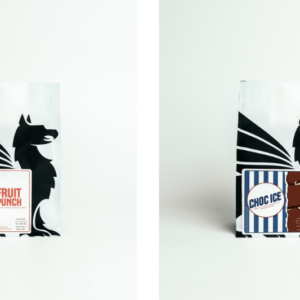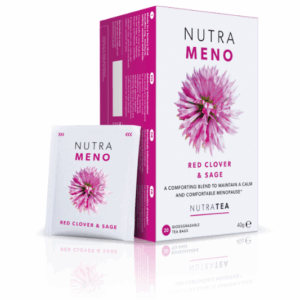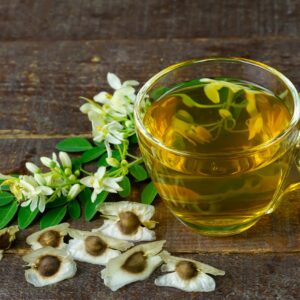Herbal/Botanical Tea: A Flourishing Sector, But Not Without Challenges

Credit: AdobeStock
The demand for herbal and botanical teas is steadily growing in Western markets as their high level of functionality has made them essential parts of daily lives of consumers. However, the ever-increasing prices and limited supply may restrict a more active growth of the market in years to come.
Since the beginning of the Covid-19 pandemic, the demand for herbal teas in both the European region and North America has significantly increased, despite generally high prices for such teas and their positioning as premium products. Most analysts believe the industry has big potential for further growth in years to come, however the number of serious challenges may prevent its more active growth.
Perhaps the biggest challenge is climate change, which seriously affects harvests of key ingredients, which are used in the production of herbal and botanical teas and creates conditions for their shortage in the market already in the coming years. According to Shabnam Weber, president, Tea and Herbal Association of Canada, the problem is rather pressing for the industry, although in Canada, the market remains stable. “For any agricultural product, including herbal/ botanical ingredients, the biggest challenge is climate change, which could have an effect on supply. As for Canada, there are currently no problems with the growth of botanicals in the Canadian market. In fact, botanicals have continued to see a healthy growth in our market over the years,” she said.
The popularity of herbal and botanical teas has been steadily growing in Canada in the last 15 years with the arrival of sushi and various Asian traditions to the country. Initially, tea began its comeback in Western Canada (coming from the US) and finally ended up in the eastern part of the country. According to StatCanada, the country’s web-resource, Canada has a very limited domestic tea production, (with only one tea farm on Vancouver Island), which is mainly due to climatic conditions, which forces the country to import about 50,000 tonnes of tea annually.
Production Challenges In Europe
Representatives of tea sectors also noted the existing threat of serious interruptions to the supplies of raw materials for herbal and botanicals teas. That may lead to the decline of supplies of these teas to some major European markets.
Dr Sharon Hall, chief executive, UK Tea & Infusions Association (UKTIA), told T&CTJ that herbal infusions are rapidly gaining popularity in the UK due to their health benefits — such as promoting relaxation, supporting immunity, and aiding digestion and being used together with the favourite black tea. At the same time a threat of supply interruptions still exists. “Many consumers are seeking caffeine-free options, further boosting demand. The rise of the sober curious movement and the growing presence of herbal infusions on mocktail menus, and in the hospitality sector, are also contributing to the category’s expansion. In the UK market, black tea – with or without milk – still dominates.”
Dr Hall added that the 2025 UKTIA survey revealed that 73 percent of respondents reported drinking black tea, compared with 17 percent who prefer herbal infusions and ten percent who choose green tea. “That said, rather than replacing black tea, around three in ten UK consumers are incorporating herbal and fruit infusions into their daily routines in addition to black or green tea. Popular flavours include peppermint, ginger, and chamomile.”
Hall noted that despite this upward trajectory, the herbal infusions market faces some challenges, as competition for high-quality raw materials and limited shelf space is intensifying. “Like all segments in the food and beverage industry, the herbal sector is increasingly vulnerable to the impacts of climate change, which may become more severe in the years ahead. While regulatory frameworks are generally welcomed for promoting food safety and supply chain transparency, they can sometimes pose challenges to innovation and market access – particularly when they fail to consider the diverse growing and environmental conditions of different source regions. Additionally, the current global economic situation has made some consumers more price- sensitive, meaning that not everyone is able – or willing – to pay a premium for high-quality herbal products.”
At the same time, most leading producers also confirm the existing challenges, which may significantly slow further growth of the herbal and botanicals teas market, both in Europe and the rest of the world.
Steffen Schmucker, tea director of Hälssen & Lyon, one of the largest tea suppliers and processors in Germany and the EU, said that trading and processing fruit, herbs and spices has long been an important part of the company’s business. Hälssen offers them as single components or uses them as ingredients for the numerous fruit and herbal infusions and tea blends that it creates and produces for international customers, tailoring them to the preferences of the respective market. He shared that while global demand for herbal and botanical teas is increasing, driven by health consciousness, a desire for sustainability, and a preference for natural products, the industry is facing some major challenges.
“Climate change is disrupting cultivation through extreme weather events, changing rainfall patterns, and rising temperatures. For example, the quality and yield of sensitive plants such as peppermint, chamomile and lemon verbena deteriorates, while the pressure from pests and the required care increases,” said Schmucker. “At the same time, stricter consumer and regulatory demands, like those
relating to organic methods, traceability, and residue-free products, raise the bar for quality, particularly for functional teas. Producers who are unable to meet EU standards tend to turn to alternative markets. While demand continues to grow, especially in the premium and wellness segments, supply is tightening due to the impact of climate change, competition for land use, and social factors in producing regions.
This imbalance is fuelling price increases and supply constraints.”
Representatives of Wollenhaupt, another major German tea supplier, which has significantly strengthened its position in the herbal teas sector in recent years, confirmed these trends. While the company declined to provide official comments, Wennberg-Senkel Ninja, a representative for Wollenhaupt, in an informal conversation, shared that in terms of challenges, there are the long-standing issues such as climate change with extreme conditions. She said that drought or severe flooding can
have a major impact on the harvest quantities and quality of various herbs, fruits and flowers. Ninja added that fewer available harvest workers due to rural exodus, exposure to pesticides and increasingly strict regulations also pose challenges.
The German Tea & Herbal Tea Association (GTHTA) noted that in Germany – the EU’s largest economy – the demand for herbal and botanical teas among local consumers has significantly increased in recent years. Thus, many local tea manufacturers have significantly expanded their range by beginning to blend and sell various herbal and fruit teas.
Furthermore, many non-alcoholic cocktails, or mocktails use herbal teas and fruit infusions, whose natural diversity aids in creating endless new non-alcoholic versions for bars, pools, and parties.
The current popularity of herbal teas in Germany is also reflected by the fact that the share of organic and herbal teas is already more than two times higher the average organic share of the entire food market in Germany. Also, according to statistics of the GTHTA, the current average per capita consumption of such teas among German consumers in 2024 exceeded 40 liters, which is a significant figure, given that the overall per capita tea consumption in the country varies between 68 and 69 liters per year.
However, it is unclear whether suppliers will be able to meet the existing local demand, as, due to the current challenges in the industry, the supply may be seriously limited in the coming years. Also, in the majority of German supermarkets the volume of available shelf space has significantly decreased in recent years, which leads to a stricter competition between herbal teas and other soft drinks in the local market. One option, however, may involve more active sales of herbal and botanical teas by specialised herbalists’ shops, the number of which has significantly increased in recent years in Germany and other Western states, such as Italy.
Alberto García Peña, who is the director of Herbes del Molí, one of Spain’s largest producers of aromatic herbs, also confirmed these trends about herbal teas’ popularity and challenges. He added that despite the ever-growing popularity of herbal and other organic teas in Europe, not everyone knows the real benefits of organic infusions. Peña said there’s still a long way to go and there’s a lot of ‘self-serving’ misinformation and greenwashing. One is the presence of pesticides in some herbs, which are used for the production of teas. A couple of years ago such reports were published in some EU media, however, the latest studies show most of those reports were inaccurate.
Many independent analysts also believe that the existing challenges as well as tough economics will prevent more active growth of the industry in the majority of Western markets. Nathanael Lim, beverages insights manager at Euromonitor International, commented that due to relatively high cost of such teas, many consumers in the EU, North America, and other markets will refrain from their regular purchase and consumption.
“While fruit/herbal tea products with functional claims focused on relaxation and calming have been gaining popularity, the high cost of living environment has resulted in price sensitive consumers shifting to cheaper alternatives. Moreover, the impact of climate change and rising cost of raw materials has resulted in low production yield, leading to higher prices of fruit/herbal teas,” said Lim.
- Eugene Gerden is an international freelance writer who specialises in covering the global coffee, tea and agricultural industries. He works for several industry titles and may be reached at [email protected]






